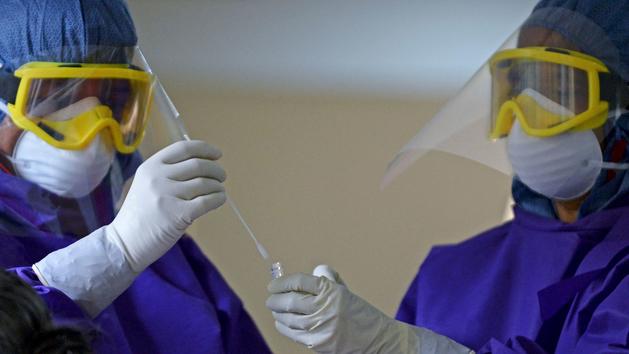1. What are the differences between serological tests and PCR tests?
There are two types of tests: virological diagnostic tests, commonly known as PCR and serological tests.
The first are the most common and allow you to know if you are currently sick. Using a long cotton swab, passed inside a nostril, called a swab, the practitioner detects if infectious germs are present in the human body. The test lasts only ten minutes and the results are available within 24 hours.
Serological tests are themselves differentiated into two categories: automatic tests (Elisa) and rapid diagnostic orientation tests (Trod). The latter are the most common and Coronavirus: pharmacies are authorized to carry out rapid serological tests. In a few minutes, using a drop of blood taken and subjected to a reagent, the patient will be able to know if he has antibodies and therefore if he has been contaminated with coronavirus in recent weeks, with or without symptoms.
In all, a hundred tests, 51 serological tests and 54 PCR, are validated by the National Reference Center (CNR). The list is available on the Ministry of Health website. Self-tests are currently prohibited in France. The Ministry of Health stresses the importance of carrying out these tests in a medical setting so that a specialist can read the results with expertise and thus avoid misinterpretations.
2. Who can get tested?
Anyone who has symptoms (fever, cough, difficulty breathing, loss of taste) is called to be tested in the laboratory, and not in pharmacies to limit possible contamination.
In the event of contact with a patient, it is strongly advised to carry out a test immediately if you live in the same household or to wait 14 days after the last contact in the event of non-sharing of the accommodation.
Read also: Covid-19: are we doing enough screening tests in France?
3. Who can deliver the tests?
Since July 11, pharmacies can perform serological and virological tests. Before that date, you had to go to a medical analysis laboratory in town or to the hospital.
In recent weeks, the waiting time can sometimes exceed ten days because the laboratories are experiencing a significant " increase in requests " for which the laboratory technicians are struggling " to cope ", testified on July 11 the biologist Anthony Mouchère on Europe 1 .
Read also: Rapid serological tests now available in pharmacies
4. How much does a test cost?
Not only are they different in their functioning, the screening tests do not all have the same price. The ministry of health established prices of reference (9.45 euros for a Trod) without however framing them in the law. Pharmacies and laboratories can apply the price they want. A PCR test is more expensive, it costs around 54 euros.
PCR and Trod tests are reimbursed 100% by Social Security provided they have been prescribed by a doctor. Without a prescription, the patient will have to pay the full price.
5. What if the test is positive?
If a PCR test is positive, the patient is therefore contagious. He is taken in charge by the regional health authorities in order to remain confined and protect those around him.
If a serological test has been carried out and is found to be positive, the patient is encouraged to supplement his diagnosis with a blood test to be carried out in the laboratory. A PCR test can also be complementary in order to know if the patient is still contagious.
6. Are the tests reliable?
Difficult for scientists to certify the immunity obtained after contamination with Covid-19. Caution confirmed by the French National Authority for Health (HAS) in mid-May, which specified that serological tests were useful "in epidemiological surveillance and diagnostic strategy" , but that they were only a complement to virological tests.
Read also: Serological tests: reliability still too imperfect against coronavirus
This is why the Ministry of Health specifies that being tested does not replace the barrier measures necessary to fight against the spread of the epidemic.






